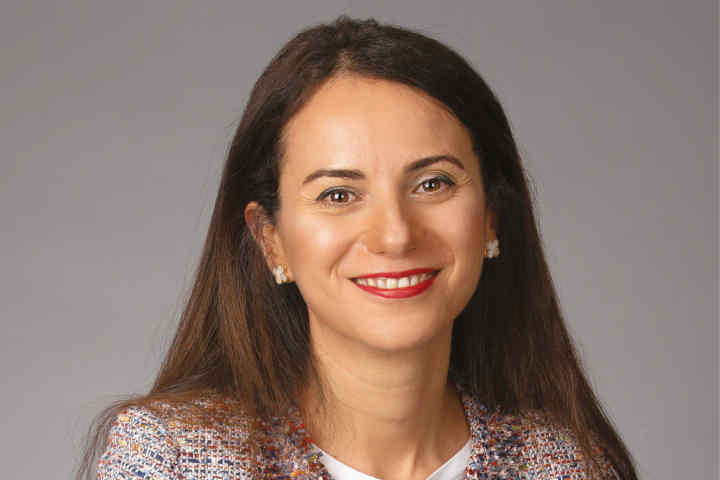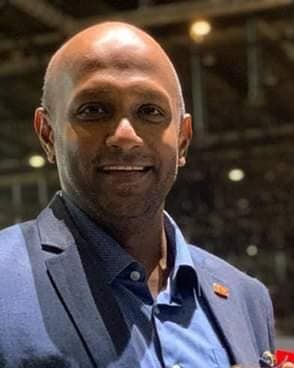Business Powerhouse
Hajar Alafifi | Preparing for the long run despite changing circumstances
Hajar Alafifi, the Chairperson of Unilever Sri Lanka, who’s an advocate for diversity, equality and inclusivity, with more than twenty years of experience in driving sustainable growth strategies, sheds light on how to remain agile and manage the changing circumstances to ensure survival during the pandemic and continuity in the long run.

Q: This pandemic has caused almost every business to re-evaluate major operations. One of the most important factors is effectively managing cash flows. In your opinion, how important is cash flow management during a crisis and how has Unilever been able to manage them at a time like this?
I strongly believe managing cashflow is very important at a time of crisis for any corporate entity as this can dictate success in any industry. When done right, your cashflow gives you a complete picture of cost versus revenue and ensures you have enough to repay your investors and invest behind growth and expansion, all while making a profit. There is a common perception that bigger businesses are better off in managing cashflow. Whilst part of this is true, we must remember that whilst cash inflows are bigger for large corporations like Unilever for instance, so are its cash outflows. It all comes down to achieving the right balance.
How did we manage our cashflow during these unprecedented times? Let me say that we needed to be judicious and act responsibly within our ecosystem. As you know, the pandemic had a significant impact on the global economy. It induced large changes in consumption patterns which disrupted the demand and supply of commodities. This led to sharp spikes in costs, doubling some of our raw material prices, one of the highest we have ever faced. We, therefore, had to take measures to discipline ourselves and re-evaluate where we were going to deploy our funds going forward to provide the best value possible to our consumers and get a good return on investment at the same time. In that same spirit, we tightened our cash collections significantly, safeguarding our working capital.
Just because you’re big doesn’t mean your cash flow is big, your outflow is also big. Therefore it’s a balancing act between what you have and where you need to invest.
Q: A lot of businesses are dependent on imports to a certain extent and the rapid depreciation of the LKR has been extremely difficult for them. What measures has Unilever taken to minimize the impact of the Rupee depreciation on imports?
Sri Lanka is poised as an importing country firstly because of its nature as an island, and because 13% of the country’s GDP is based on tourism. Therefore I think the angle must be on how to start nurturing the industries locally.

Due to the 84 years, we have been able to localize our portfolio. 95% percent of our products are produced locally, and our target next year is 97% percent. This means growth across the system, more employment, more livelihood, more investment in machinery and technology, and therefore an ability to influence the GDP.
We believe the rupee depreciation is a blip in the system. There is no sense of panic that has been created and the government will find a solution in the long term. We have confidence in our local authorities to do what is right for the country and exercise legal regulations where necessary.
We have not seen the currency depreciating this far in the last 3 years. When it comes to how we’ve been able to protect our business, we have placed a specific export unit—just as you’d need to import certain raw materials.
Another great consolation is that we are blessed to have an export business. 80% of Unilever’s global iced tea supply comes from Sri Lanka where we produce black instant tea powder from our Ceytea factory in Agarapathana; a portion of our exports also come from some of our brands like Glow and Lovely, Sunsilk, Dove, Vaseline, and Lifebuoy where we export to counties like Singapore, Thailand, and Dubai.
When you’re a part of a big multinational like ours, you can also have help from your parent company. Sri Lanka’s situation is a consequence of many unfortunate events, but not a structural issue, therefore we have been able to get our parent company’s help.
Q: The import restrictions that have been imposed on a large number of items have resulted in not only a shortage of supply but also difficulties in accessing raw materials. What are the strategies that Unilever is adopting to ensure the supply for tomorrow?
As mentioned, we pride ourselves on being a local company, where we manufacture 95% of our products in Sri Lanka. However, the biggest limitation we face here in terms of production is that Sri Lanka, unfortunately, does not produce many of the raw materials we require to manufacture our portfolio due to limitations in natural resources or that the raw materials available here do not comply with our stringent quality standards for manufacturing.
On top of currency depreciation, there are other factors. For example, there’s a significant oncost in shipping and logistics and an increase in the raw materials itself. In our case, we place importance on forecasting, so we made predictions earlier in 2021 for shipment to increase. I think the ability to forecast and then take action on those – help.
Secondly, any business, no matter how small, will find that they have trapped costs in the system. So go in on zero-based budgeting while rethinking every line on the P&L because when you’re faced with such unprecedented challenges, the focus of any CEO is business continuity. However, business continuity doesn’t mean you’re going to close in two years—it has to be seen in the short and in the long term. So in this position, I think the first response should be to cut costs from the system—and I mean the operations. I do not mean people. We have never cut on our people; we have only invested in our people because, in the end, they’re the ones who will generate the creative ideas to keep you going.
Q: These uncertain times have also raised a lot of speculations on the costs of production in the future. What pricing strategies do you think businesses should consider ensuring that they can stay afloat even during times of economic crisis?
I would like to make a few general comments relevant across industries.
With the pandemic upon us, almost every business had faced a conflagration of multiple challenges, from unprecedented commodity inflation to disruptions in global shipping freight and economic downturn. In situations like this, if businesses aren’t able to stay afloat by breaking even at least, they wouldn’t be able to operate anymore.
There are times where your production costs rise a little bit and you absorb it in your P&L, and there are times like today where the cost rises on a completely different tangent and this is compounded by other emergencies. There’s no way you can return to the past in this situation. As a board, the first thing we have evaluated are the costs we do not require and can cut. We found many. Number one is to run your company on zero-based budgeting. Number two is being smart about your choices; what you need to stop and what you can accelerate. Then, consider what can pass in terms of consumer price and what can not—because there is also affordability to be balanced.
This period is challenging for many of us, but the most important question to ask is if your company has done what is right for your people and your consumers. If the answer is yes, then I think it’s a good outcome. The number might not look like the one you wanted in the beginning, but I’m certain it can only improve going forward.
Q: SMEs play a major role in a country’s economy, especially during a crisis, and Unilever invests in certain ones to empower local manufacturers. What are the calculated risks you take when investing in these SMEs’?
We’ve been here for 84 years, we have international standards and we consider ourselves local. When we put these three facts together, we need to work with local companies and bring them to our international standards. It’s not a calculated risk because we see our SMEs as partners. So we partner with them and work on how we can bring them to an international standard.
At Unilever, we work with some fantastic partners, with whom we have built strong relationships over the last decades. We have helped grow and expand their businesses through these long-standing partnerships, enhancing their quality of life and developing resilient communities. This in turn has positively impacted our business with improved revenue streams, giving us the confidence to venture into new partnerships.
Earlier, I spoke about our production being 95% percent local, and that includes our packaging. Back then, there were no suppliers who adhere to certain quality standards so we worked together and brought them to that standard. Now more than 90% of our packaging is done by Sri Lankan companies here. We look at it as a win-win scenario; we learn from them and they learn from us.

Unilever Packaging Done Locally – JF & I Packaging
Then, I think it’s also a matter of purpose. We believe that we should give back to the community. Even in 2021, we continued a program with rural women entrepreneurs because we know women have superb ideas but they just don’t have the means. Another thing we are trying to do is, preserving the smaller retailers because bigger supermarkets emerging means that the smaller shops may have to close soon. We have worked with 2500 small shops to aid them with marketing, accounting, merchandising, and we invest to give that shop a better experience. I would not call it risks because it’s a partnership.

Unilever Sunshine Retailer Development Program
As we consider partnering with these SMEs, we of course do our due diligence in evaluating their technical expertise, capabilities, potential, and financial stability, but for us, it is more important that these relationships are built on trust and partnership; ethics is one aspect we will certainly not compromise on.
Q: As the leader of a multinational organization like Unilever employing thousands of individuals, in your opinion what are the key metrics that could be applicable across any business during this crisis?
I believe in times like these, companies must build on the basics of business fundamentals to ensure business continuity.
As such, my advice to any entrepreneur is to not look at their business within 1 year. No matter how small the business, they need to view it from a 3-5 year lens to make the right choices in the short term. This means there would be years where profit would be larger than planned and years where profits would decline. What is important is to make the right call in the short term that will enable them to sustain their business in the long term.
At Unilever, we think in the lines of our P&L. No matter how big or small, we strive to cut our excess fat (trapped costs) from our system. So, we launched a program by the name of Symphony last year to look at each of our cost lines continuously throughout the year, with a zero-based budget mindset. We believe it is important for us to first tighten our belts before passing on the burden to our consumers.
Liquidity is the lifeblood of business. This truism becomes even more apparent in periods of economic duress. Understanding, measuring, and forecasting your liquidity position is crucial to enduring periods of economic contraction and ensuring your business continues to thrive as economic conditions improve.
We should also not compromise on product quality by merely looking at the short run as consumers seek a greater worth for the money they spend.
Seeking new business opportunities is another way to overcome challenges during a crisis. At Unilever, despite the lockdown, we launched new malt brands like Viva and Horlicks and discovered new route-to-market approaches to ensure the continuous supply of our products to our consumers.
Lastly, it’s evaluating whether we have done enough for the country. This is a metric for us because that means sustainability and purpose in the long run. Sourcing sustainable palm oil costs us more but it is the right thing to do, so we go and invest there. The collection of our plastic is also high in cost, but we don’t want to see plastic in our ocean. This is non-negotiable. We are going to invest in people, in building community, in sustainability. It’s all in being agile and managing changing circumstances; that’s how we’re doing things now.

Unilever – Cargills Plastic Waste Management Unit













